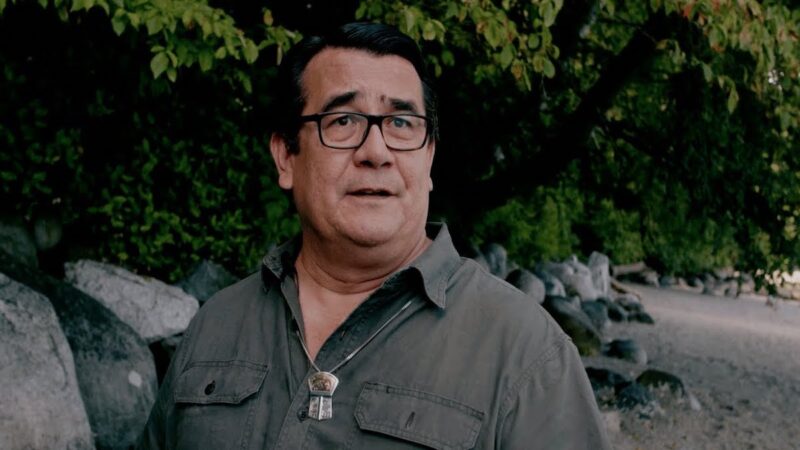Anti-aquaculture activists push attacks on government scientists
Strategic motive is to discredit government scientists and weaken the legitimacy of regulatory agencies to bolster support and public donations for anti-salmon farming activist groups.
Analysis
By Fabian Dawson
SeaWestNews
Anti-salmon farming activists in British Columbia often accuse government scientists of being influenced by industry pressures, especially when the scientific studies produce results that do not support their agenda.
The strategic motive is to discredit government scientists and weaken the legitimacy of regulatory agencies to bolster support and public donations for the activist groups.
Rooted in preconceived notions and falsehoods about the impacts of salmon farming, these activists constantly reject any evidence that contradicts their ideological beliefs.
This week, one of the activist groups labelling itself as the First Nations Wild Salmon Alliance, took its attacks on government scientists to Ottawa, attempting to discredit their findings and undermine their credibility.
Led by the vocal but fact-challenged anti-aquaculture detractor, Bob Chamberlin, the Alliance once again claimed without providing any evidence that Canada’s Department of Fisheries and Oceans (DFO) is in a conflict of interest by accepting studies from the Canadian Science Advisory Secretariat (CSAS).
CSAS coordinates the scientific peer review and science advice for DFO. It has produced 10 scientific studies, which have been backed up by several court rulings to show that the salmon farms pose less than a minimal risk to wild stocks.
Chamberlin has also been signalling that the government should ignore the rights of First Nations who see salmon farming in their traditional territories as a pathway for economic reconciliation.
Currently in BC, all the existing salmon farms are supported by the First Nations communities that they operate in.
Chamberlin told the press conference in Ottawa that Canada should implement a “truly independent science advice body” to directly advise decision-makers.
Translated, that means he wants DFO to only work with agencies and entities that produce science which fits with his anti-ocean farming narratives.
Chamberlin’s assertions in Ottawa are part of a concerted campaign by his activist group to influence the government’s pending transition plan for the marine aquaculture industry in British Columbia.
“While some groups and individuals perennially opposed to salmon farming may believe their opinions should lead Canadian science, we believe that the participation of all stakeholders helps protect the rigorous and trusted science that Canada is known for and what CSAS provides,” said Brian Kingzett, executive director of the B.C. Salmon Farmers’ Association.
“We agree that science, not politics, should lead decisions regarding fisheries and aquaculture,” he said.
The Coalition of First Nations for Finfish Stewardship (FNFFS) has said it is disappointed to see salmon farming detractors pitting First Nations against First Nations in Ottawa.
The Coalition said the activists are spouting “misinformation about salmon farming in our territories and attempting to erase the sovereign rights and title of over a dozen coastal Nations in B.C. to suit an activist-driven agenda based on activist science.”
“Our coalition is opposed to the federal government disregarding science and bowing to unfounded activist claims on salmon farming that, if heeded, will severely damage our communities, and deny our rights and title.
“If Canada is going to walk the talk on true reconciliation, I think every Canadian would agree that the future of modern salmon farming in BC must be shaped by the coastal First Nations in whose territories the farms are located.”
Canada’s top fisheries and aquaculture scientists have also urged the public and politicians not to believe the claims against salmon farmers being made by activists like Chamberlin, saying their widely propagated assertions are not backed by science.
In a rare public defence to counter accusations by the activists, nine scientists, who participated in the rigorous assessments done by CSAS wrote in an open letter that:
“As scientists who have contributed to many peer-reviewed analyses on salmon conservation and farming for the DFO, we’re compelled to respond to prevent propagation of any misinformation. Canadians can trust the scientific facts and advice presented by CSAS, the science evaluation body of the DFO.
“Home-grown, ocean-farmed salmon is a valuable food resource for Canadians. It is an affordable, highly nutritious protein with year-round access.”
Kathryn Hallett, a DFO spokesperson also pushed back against the attacks on her department’s science.
“Scientific integrity guides DFO’s science processes, shapes how we work with others and how we generate science advice to inform decision making for the benefit of Canadians. The Department continues to take concrete steps to re-enforce transparent, impartial, and evidence-based peer review and scientific advice for decision-makers,” she said.
The salmon farming sector in British Columbia is a vital part of the local economy and Canada’s Blue Economy, providing $1.2 billion in annual economic activity and supporting over 5,000 jobs in coastal indigenous and non-indigenous communities.
While legitimate concerns about the sector’s environmental sustainability should be addressed through robust scientific research and evidence-based policymaking, attacks on our government scientists only serve to undermine these efforts.
Screenshot from a YouTube video shows Bob Chamberlin of the First Nations Wild Salmon Alliance

